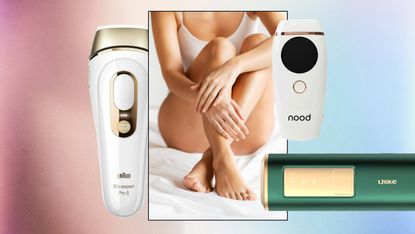
After experiencing the many pitfalls of shaving (ingrown hairs, redness, irritation, and speedy re-growth), we're contemplating alternative hair removal methods this season. Since professional laser hair removal isn't the most budget-friendly option—initial sessions can cost upwards of $600—we're looking at the next best thing: the best at-home laser hair removal devices.
Before we go any further: Body hair is a completely natural, normal thing, and you should absolutely not feel compelled to remove it if you don't want to—it's a personal choice. (If you're a body hair, don't care kind of person, more power to you!) But if you're into the idea of laser hair removal, are over trying to find the best razors, waxing kits, or epilators, or want to save money but are a little freaked about the idea of doing laser hair removal at home, we've got you covered.
An Overview of the Best Laser Hair Removal Devices
- Best At-Home Hair Removal Device Overall: Braun Silk-Expert Pro 5 IPL Hair Removal System
- Most Affordable At-Home Hair Removal Device: Kenzzi IPL Laser Hair Removal Handset
- Best At-Home Hair Removal Device for All Skin Tones: mē Smooth Permanent Hair Reduction Device
- Best At-Home Hair Removal Device for Hard-to-Reach Areas: Tria Beauty Hair Removal Laser 4X
- Best At-Home Hair Removal Device for the Bikini Line: Nood The Flasher 2.0
- Best Cooling At-Home Hair Removal Device: Ulike Sapphire Air+ IPL Hair Removal Device
How We Chose the Best At-Home Laser Hair Removal Devices
There are a few key aspects to keep in mind when choosing an at-home laser hair removal device: price point; the number of flashes each device uses; whether a device has FDA clearance; and whether or not a device will work for all skin types or tones. Ahead, I broke down exactly what the Marie Claire beauty team—specifically, Marie Claire Beauty Director Deena Campbell, Beauty Editor Samantha Holender, and Fashion Commerce Editor Julia Marzovilla (a.k.a. me!)—looked for when reviewing and testing hair removal devices for this list.
We also talked with Dr. Joshua Zeicher, the Director of Cosmetic and Clinical Research at Mount Sinai Hospital's Department of Dermatology; Dr. Howard Sobel, M.D., NYC dermatologist and founder of Sobel Skin; Dr. Rosemarie Ingleton, M.D., dermatologist and medical director of Ingleton Dermatology; Dr. Rachel Nazarian, M.D., dermatologist at the Schweiger Dermatology Group; Dr. Gretchen W. Frieling, a Boston-based triple-board-certified dermatopathologist, and Dr. Anahita Mansouri, a cosmetic doctor at Kat & Co Aesthetics in the UK.
- Skin Type and Skin Tone
Because laser hair removal devices work by identifying each hair’s pigment in relation to your skin, the process doesn't work for everyone. Many of the devices below are marked as not suitable for those with deep or dark skin and darkly colored hair, as well as those with fair skin and gray, very blond, silver, or red hair.
Dr. Zeichner says that while the “best hair and skin combination for laser hair removal in general is dark hair and light skin,” there have been advancements that allow them to work on a wider range of tones. “Unfortunately, no matter what device you are using, we cannot use lasers to get rid of light blonde or white hair because the lasers need the pigment in the hair itself to act as a target,” Dr. Zeichner adds.
- Number of Flashes
"The number of flashes a device emits really depends on the device itself,” Dr. Zeichner says. “Some devices offer a single flash, while others multiple.” He also makes clear that “different devices use varying wavelengths of light, so it is hard to make generalizations.” However, it’s important to make one single pass over a specific area to avoid burns.
- Price
The items on this list are investments for a reason. Laser hair removal can be tricky to do at home, and using any of these devices comes with their own set of risks. With that in mind, many come with a stamp of approval from one or more dermatologists. If you’re not willing to invest in an at-home device at this point, we recommend speaking to your dermatologist directly or paying a visit to a doctor’s office to find the best laser hair removal solution for you.
- FDA Clearance
All of the devices on our list, below, have been cleared by the FDA.
The Best At-Home Laser Hair Removal Devices
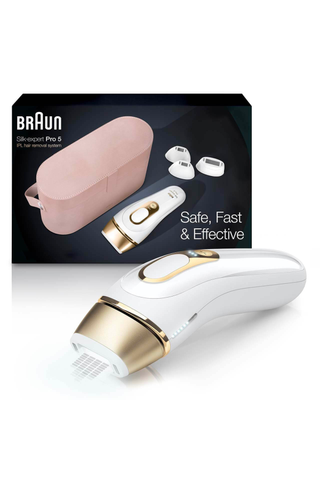
Promising smooth results in as little as four weeks, this at-home laser hair removal device is fast enough to treat both legs in five minutes flat, plus it has three sensitivity modes so it's as close to painless as you'll get. It uses up to 125 flashes per minute—with a total of 400,000 flashes, or 21 years of full-body use—and is clinically tested to be safe and effective at home. However, this device is not the best for all skin tones and hair type combinations; it isn't suitable for very deep skin tones or very fair hair colors, like light blonde, red, and gray.
FDA-Cleared: Yes
Laser Type: IPL
Number of Flashes: 400,000
Pros: Top-rated; Has a max of 400,000 flashes; Comes with three different heads
Cons: Not suitable for deep skin tones; Not suitable for light blonde, red, or gray hair.
Customer Review: "I got this around 2 months ago as a gift and have been using it every week and even though I have about 4 sessions left until I can see full results, I basically have no hair left on my body! The only thing is that the heads are impossible to clean and I would love to buy new heads for them, haven't done much looking around but hopefully, that's possible" — Braun
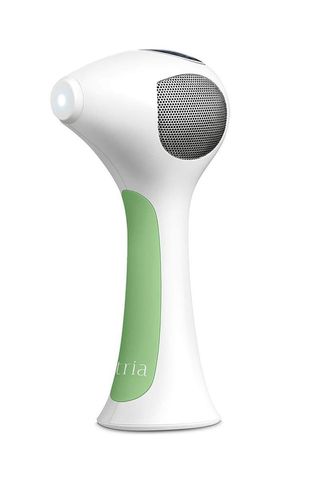
Just short of $700, the Tria 4X will cost you a pretty penny—but it was the first FDA-cleared laser for at-home use, and has become a favorite among dermatologists and patients for legit, professional-level results. “I’m a fan of this device because it has high energy levels and it’s super easy to use,” says Dr. Nazarian.
Dr. Zeichner is a fan of the Tria, too: "This can be used both on dark and light hair, although it will not work on white hair," Zeichner explains. "It is a true laser as opposed to other devices that use a broad spectrum of light." Dr. Sobel suggests trying the Tria laser as well. "The technology safely delivers over three times more hair-eliminating energy than other at-home hair removal devices, making it the most powerful at-home hair removal device," Dr. Sobel explains.
FDA-Cleared: Yes
Laser Type: Diode
Pros: Dermatologist-recommended; Can be used on dark and light hair; Wireless design; More effective than others on the market.
Cons: Not suitable for deep skin tones; Not suitable for dark skin tones; Not suitable for blonde, gray, or red hair.
Customer Review: "I didn't think this would work so well but I see a dramatic difference and I've only had this for a little over a month." — Amazon
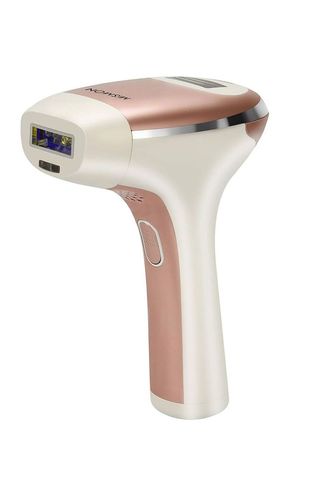
This laser hair removal device from MiSMON uses IPL technology and is FDA-cleared. Results from a clinical trial showed that hair grew more slowly after three weeks and that there was a 94 percent reduction in hair after a nine-week course. It has a LED screen at the top so you can clearly see the amount of flashes you have left. The device has a total of 300,000 flashes, enough for between seven and nine full-body uses. It has five energy levels and is cleared for use on most areas of the body including the underarms, bikini line, back, and arms. However, it is not suitable for use on the face.
FDA-Cleared: Yes
Laser Type: IPL
Number of Flashes: 300,000
Pros: Comes with protective glasses; Has an LED screen for precise use.
Cons: Large size; Not recommended for use on the face.
Customer Review: "Have been using this device for about 6 months now. Over 4,000 flashes used. Device powers on consistently, works while treating areas and has adjustable intensity settings. Most importantly, THIS REALLY WORKS. Used to treat my lower back for swimsuit season, after just a few treatments I noticed a significant thinning in the hair that grew back. After a couple of months only light peach fuzz is growing where coarse black hair grew before. The product works and it works well. Excellent value for the money compared to similar devices." — Amazon
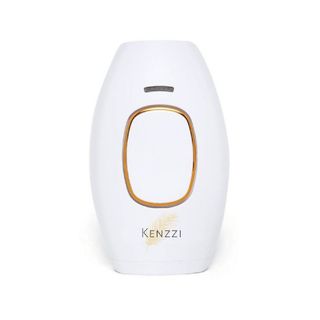
This lesser-known device from Kenzzi caught our eye thanks to the fact that it has five power settings, which means you can adjust based on your skin tone, the color of your hair, and let's be real, your pain tolerance levels. As with all these devices, compliance is key, so do follow the manual instructions and expect results within five weeks of diligent usage. Plus, it promises to work in under 10 minutes, so it’s great if you’re on the go. However, the brand notes that this device is not suitable for deep skin tones.
FDA-Cleared: Yes
Laser Type: IPL
Number of Flashes: 500,000
Pros: Small design; Suitable for use on the face; Has five levels of intensity.
Cons: Not suitable for deep skintones; Not suitable for dark skintones.
Customer Review: "Easy to use, no pain, definitely seeing reduction in hair - only shaving legs twice a week instead of daily after 10 weeks. Looking forward to seeing how things go with monthly maintenance." — Kenzzi
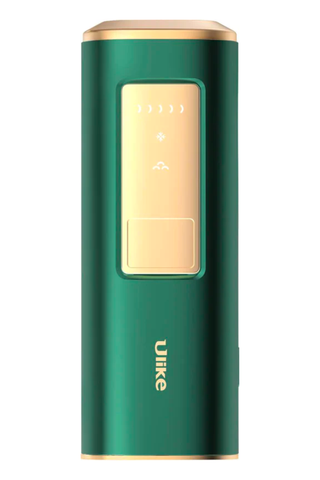
For the most comfortable hair removal experience, you want to keep your skin cool. This FDA-cleared IPL device from Ulike uses sapphire lamp heads and a Quadro cooling system to bring the sapphire temperature down to 50 degrees Fahrenheit. It promises results in as little as four weeks, has five energy levels for different skin tones, and the kit comes with everything you need, including safety glasses and a razor. It has two treatment modes: Continuous Mode to glide over the skin and treat larger surface areas, as well as Single Mode for targeted removal. It’s suitable for treatment on the face, bikini line, armpits, arms, and legs. The Ulike is not suitable for very dark and deep skin tones as well as red or gray hair.
FDA-Cleared: Yes
Laser Type: IPL
Number of Flashes: 1,000,000
Pros: Has five energy levels; Has two modes; Has cooling technology; Comes with safety glasses.
Cons: Not suitable for very dark and deep skin tones; Not suitable for gray and red hair colors.
Customer Review: “I followed instructions completely and was starting to see results by week 3! It’s amazing and the only thing that has ever worked for me! I have dark thick hair and only a small amount grows back now! I used to shave every other day, it’s now been a week and I still look like I don’t need to shave!” — Currentbody
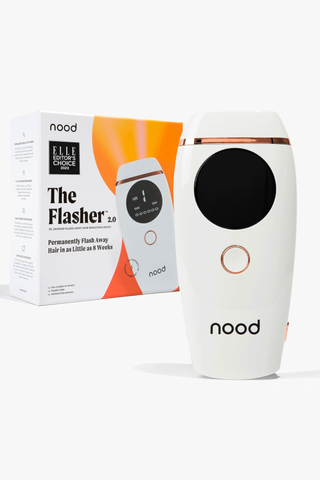
This is the best laser hair removal device if you’re targeting the bikini line. This Nood gadget uses a less painful multi-wavelength of light that is still just as effective. It’s not wireless, but it has more intensity thanks to the fact that it has a cord. Reviewers note that it is easy to use, but that the process takes a while because you need to go over each area three times. They also note that coarser hair—like on the face—takes longer to go away, but that they notice a difference in the density of their hair after eight weeks.
FDA-Cleared: Yes
Laser Type: IPL
Pros: 600,000 flashes; Fast-acting; Top-rated; Less painful; Good for the bikini line; Can be used on the face.
Cons: Not suitable for deep or dark skin tones; Not suitable for white or light blonde hair.
Customer Review: “I have used this as directed (go over the area 3x, twice a week for 8 weeks) and while the hair is not 100% gone, it’s about 90% gone and the hair that remains is much finer and grows much slower. I no longer have to shave every day! I will keep using this in these areas for a few more weeks and I’ve also started doing other areas. I would buy this again.” — Amazon
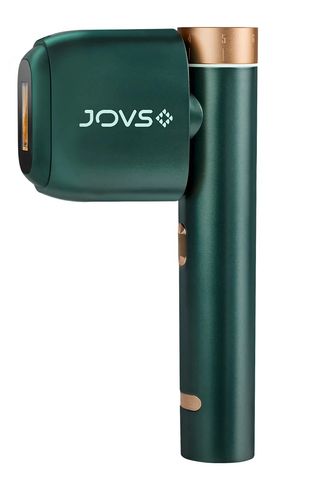
A common theme among various at-home laser hair removal devices is that the head of the device is so small and unwieldy that a removal session can sometimes take extra time. This device speaks for itself, with one big selling point: the 330-degree rotating head is detachable. Plus, no matter where you're looking to treat (face, arms, legs, bikini lines, etc), there's a setting that's going to work for you. The six modes let you remove hair from any part of your body with accuracy, and the cooling screen keeps your skin at a constant five degrees Celsius throughout the process.
FDA-Cleared: Yes
Laser Type: Multifrequency Continuous Pulse Technology
Number of Flashes: Unlimited
Pros: Has a 330-degree rotating head; Good for use on the face; Cools skin down during use; Has unlimited flashes.
Cons: Not suitable for deep skin tones; Not suitable for gray, light blonde, or red hair.
Customer Review: "Super easy to use laser hair removal. I love the cooling device, makes the device relatively painless. I used this on my legs for almost two months now and the hair is basically gone. I am usually helpless when it comes to figuring stuff like this out, but I found this device super easy to figure out and use. Highly recommend to anyone looking for a laser hair removal device. A tad pricey, but totally worth it." — JOVS
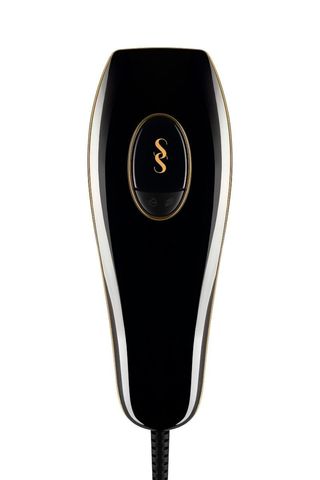
This sleek unit makes use of a broader range of light wavelengths to cover larger stretches of skin more quickly. Plus, it has unlimited flashes. The downside? Hair grows back a bit more quickly, so you'll have to be more diligent with touch-ups. It's also, unfortunately, not safe for dark skin tones. That said, it's both fast-acting—as in, it promises to remove hair on your entire body in 10 minutes—and fast-working. The brand recommends that you use it once a week for 12 weeks before moving to just once a month from there on out.
FDA-Cleared: Yes
Laser Type: IPL
Number of Flashes: Unlimited
Pros: Covers a large amount of space each time; Has unlimited flashes per use; Works quickly.
Cons: Reviewers found that hair grows back quickly after each use; Not suitable for dark skin tones.
Customer Review: "I’ve been using the Smooth Skin for about 2 months and I’m really impressed with the results on my legs. They’re super smooth and I still have a few weeks to go. I’m pale with brown hair so keep that in mind. It can be a bit tricky around areas like knees and chin so you may just need to a bit more sessions there. It does heat up so I’d recommend if it feels too hot to unplug, wait a bit then move on to next area. We’ll see how it holds up with maintenance but I’m happy that soon I’ll only have to shave and do a maintenance session once every 8 weeks - instead of a few times a week with shaving. Definitely worth the investment!" — Best Buy
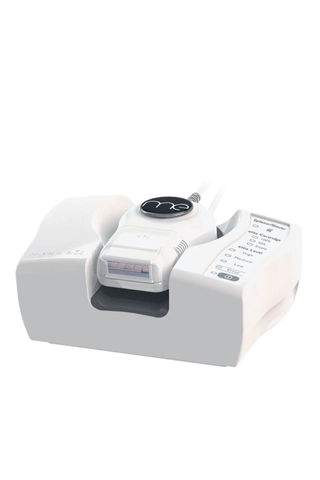
Not only is this laser hair removal device the only one of its caliber that's FDA-cleared for every hair color and skin tone, but its smaller size—it fits right in the palm of your hand!—means it can as readily flash away hairs on your upper lip as on your partner's back and thighs. Use it once a week for seven weeks, and expect smoother skin for way longer than a razor can offer. The 200,000 pulses promise to last you anywhere between three and five years, and the device claims that it will remove unwanted hair in under 20 minutes.
FDA-Cleared: Yes
Laser Type: IPL and Radio Frequency
Number of Flashes: 200,000
Pros: Good for all skin tones.
Cons: Reviewers found that it takes a long time to see results.
Customer Review: "I wished I had known about this product years ago! It works so well for me, when other things have not! In just 3 uses, I’ve seen a major reduction in hair growth & it has not damaged my skin. It saved me tons of money from those pesky contracts at the laser hair salons." — Amazon
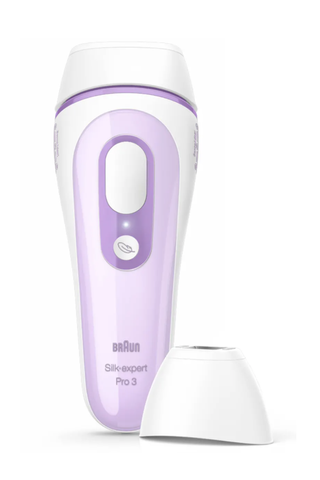
Bianca Rodriguez, Fashion & Luxury Commerce Manager at Hearst Magazines and an at-home laser hair removal expert, received her first device from her mother as—wait for it—a high school graduation present. "It wasn't your average gift, but my father gave me his Cuban hair genes, and, well—you know where this story is going. So I set off on my hair-free mission and quickly became addicted," Rodriguez tells Marie Claire. "So it's only fitting that my mother gifted me this tool for my college graduation so I could come full circle in my journey to become stubble-free. The Braun Silk Expert System uses intense pulsed light (IPL) that quickly treats my legs in under 10 minutes. It's also equipped with over 300,000 flashes, equalling around 16 years of treatments. I'm hooked."
FDA-Cleared: Yes
Laser Type: IPL
Number of Flashes: 300,000
Pros: Has SensoAdaptTM technology that adapts the light intensity for your skin; Fast-acting; Good for use on the face.
Cons: Not suitable for deep and dark skin tones; Not suitable for red, gray, or light blonde hair.
Customer Review: "You need to be consistent to see the results. It took me 3-4 months of weekly procedures to switch to bi-weekly ones. The hair that still grows is significantly softer than it was before." — Amazon
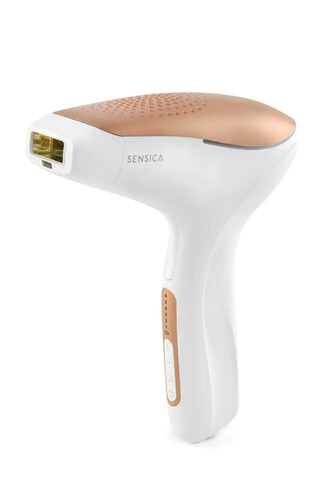
Dr. Gretchen W. Frieling recommends this device from Sensica. “I love this!” she says. “It has an automatic and manual mode and is best for on-the-go hair removal. It comes with two different heads for large and small areas. The charge will last for approximately 600 flashes.” Plus, it comes equipped with a skin sensitivity meter to protect your skin as you go as well as an energy recommendation button that, as you use it, gives you the best energy level based on your skin type.
FDA-Cleared: Yes
Laser Type: IPL
Number of Flashes: Unlimited
Pros: Dermatologist-recommended; Good for use on the face, has two light windows—one for use on the body and another, smaller one for the face; Cordless design.
Cons: Some reviewers felt it took longer to work than expected.
Customer Review: "It’s everything I ever wanted, cordless and unlimited flashes for such a low price!!! Have tried first treatment. Will keep using to check effectivity." — Currentbody
Does Laser Hair Removal Work?
The short answer is yes, laser hair removal does work. However, it comes with a few caveats. "The term laser hair removal is a bit misleading, as it really should be called laser hair reduction," notes Dr. Zeichner. "In some cases it may be difficult to fully remove hair completely." The bottom line? Using your device consistently is the key to complete hair removal.
How Does Laser Hair Removal Work?
Dr. Zeichner says that "the lasers definitely decrease the density of hair and the thickness of each individual hair," and that "it takes multiple treatments to give the results most people are looking for"—so, as with most pricey beauty treatments, it's best to stay patient when waiting for your results.
IPL vs. Lasers
You'll see the acronym “IPL” on some of the devices on this list. While sometimes used together, IPL devices work a little differently from lasers. “IPL stands for intense pulsed light,” says Dr. Zeichner. “This technically is not a laser since it emits multiple wavelengths of light. A laser, on the other hand, emits only a single wavelength.”
Why the distinction? Since there are several ways to remove hair at the follicle, different devices (and light wavelengths) are used. “One is not necessarily better than another, and it really just depends on what type of technology a company chooses to use,” Dr. Zeichner says. Another type of laser commonly found in at-home devices is called a diode. Diodes are great because they can often be used on a broader set of skin tones. They use a single wavelength of life, similar to what is used in a professional's office.
How Long Does Laser Hair Removal Last?
It varies. Some devices promise weeks or even months of a hair-free look. However, it's important to stay consistent. "Each treatment will partially destroy the follicle, so repeated treatments are often needed for the full effects," he explains. "The difference between at-home and professional strength treatments is the energy level of the laser. At-home devices have much lower energy levels to make sure they are safe to use at home, unsupervised. As a result, these treatments are slower to work and require more sessions to give noticeable improvements."
Are At-Home Laser Hair Removal Devices Safe?
Dr. Zeichner considers at-home lasers a safe alternative to in-office treatments. "At-home devices work similarly to professional treatments, but use lower energy levels. They are more time-consuming to use, but can help. They are also a great option to maintain improvements between professional treatments."
Safety Tips From A Dermatologist
- Be Careful Where You Use Your Device: While yes, you technically can perform laser hair removal anywhere on the body, it’s important that you choose a device that’s approved for the specific areas you’re looking to treat. Some of the devices on this list are fine to use on the face or in the bikini line, for instance, while others are not. With that in mind, you should also not perform at-home laser hair removal anywhere where your skin or hair is light, as the devices target the pigment in the hair itself. “It’s important to be cautious in lasering sensitive areas like the genitals, which commonly have more pigment than other areas of the body,” says Dr. Zeichner.
- Avoid Damaged, Burnt, or Cracked Skin: If you find that you have irritation or cuts anywhere on your body, avoid performing laser hair removal in that area. “I do not recommend using a hair removal device on parts of the body, where the skin is irritated or broken,” says Dr. Zeichner. “Lasering open or raw skin can lead to significant inflammation, and possibly put the skin at risk for an infection if the laser device itself is contaminated.”
How To Prepare for At-Home Laser Hair Removal
- Dr. Frieling says that you should actually shave a day ahead of when you plan to use your laser hair removal device.
- Don't use self-tanning products for at least two weeks before you start.
- Dr. Frieling says to "avoid potentially irritating products such as retinoids, retinal, or retinoic acids" prior to your treatment, as well as “brightening ingredients and acidic cleansers."
What Should You Do After At-Home Laser Hair Removal?
- Dr. Mansouri says to avoid exercising (or sweating, for that matter) for up to two days because the heat can cause "irritation on freshly treated skin after a session is completed."
- Stay out of the sun for up to two weeks.
- Wear loose-fitting clothes after you finish to keep skin cool.
- She says to "avoid topicals, including makeup, except for aloe vera gel or calming and soothing creams,” to allow your skin to heal correctly.
- Hydrate the skin “After laser hair removal, it is important to apply moisturizer to the skin to hydrate and repair the skin barrier,” says Dr. Zeichner, who recommends Eucerin’s Original Healing Rich Lotion. “If any areas of the skin are particularly dry, or irritated, opt for an ointment to form a protective seal over the skin,” he continues, siting Vaseline’s petroleum jelly as a good option.
Meet the Experts
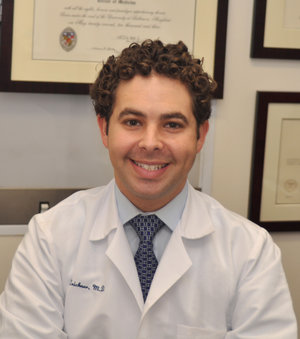
As the Director of Cosmetic and Clinical Research at Mount Sinai Hospital's Department of Dermatology, Dr. Zeichner has a broad interest in medical and cosmetic dermatology as well as clinical research. His specialty is the treatment of acne, as well as the cosmetic rejuvenation of the aging face. Dr. Zeichner treats general skin conditions, including eczema, rosacea, psoriasis, and skin cancer. In addition, he is well-versed in the use of Botox and dermal fillers, as well as lasers and chemical peels.

Dr. Howard Sobel, MD, operates Sobel Skin, a private practice for dermatology, cosmetic surgery, and aesthetic medicine in the Upper East Side of Manhattan in New York City. Sobel Skin was a part of the early stages of the medspa / medi-spa evolution in the United States. Dr. Sobel has been a pioneer of the union between dermatology & cosmetic surgery. Over the years, Dr. Sobel has not only been known for his expertise in all aesthetic treatments, but as one of the best botox and fillers doctors in New York City. His ability to provide an exceptional outcome never fails, and patients are not only thrilled with their results, but also feel younger and rejuvenated after treatment. Dr. Sobel combines modern technology with over thirty years of experience. His unique practice provides the latest advances in dermatology, dermatologic cosmetic surgery and progressive face and body treatments all in one luxurious Park Avenue facility. Dr. Sobel’s focus within dermatology is to further the total well-being and health of his patients and those who use the products he formulated and created.

Dr. Ingleton is currently an Assistant Clinical Professor of Dermatology at Mount Sinai Hospital. She received a BA in Psychobiology from New York University and her medical degree from the University of Maryland. She completed her Internal Medicine residency at Beth Israel Medical Center in New York and her Dermatology residency at New York Medical College in Valhalla, New York. She is a fellow of the American Academy of Dermatology and a member of the American Society of Dermatologic Surgeons, the Dermatology Society of New York and the National Medical Association.
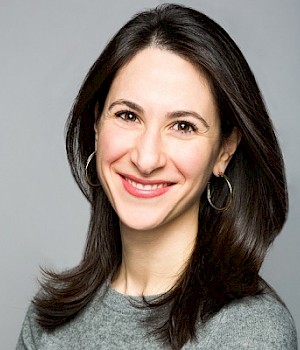
Dr. Rachel Nazarian joins Schweiger Dermatology after years of practicing various aspects of dermatology, including cosmetic treatments, skin cancer, general dermatology and dermatologic surgery.Dr. Nazarian has written many published articles in medical journals as well as widely respected dermatology textbooks, such as Treatment of Skin Disease.Dr. Nazarian serves as a faculty member at Mount Sinai Medical Center’s Department of Dermatology, where she completed her dermatology residency. While completing her medical degree at Tulane University School of Medicine, Dr. Nazarian was awarded a grant from the Women’s Dermatology Society. Dr. Nazarian is a board-certified dermatologist and Fellow of the American Academy of Dermatology.

Dr. Frieling. “Dr. G,” is a medical doctor with over 13 years of experience as a leader in the Aesthetic, Dermatology and Pathology fields. Her background is notable for intensive training in ballet, which includes attending the Juilliard School in New York City. She combines her artistic eye, perfectionistic qualities, and medical expertise, to give her patients impeccable results. When it comes to cosmetic procedures, specifically injectables, Dr. G has mastered the art of re-vitalizing the face by softening fine lines and wrinkles, re-establishing volume, and optimizing overall appearance and beauty. She will listen to your requests and concerns. Dr. G will explain the available procedures that would be optimal for your unique situation. She also performs select body procedures, including fat dissolving, buttock lifting/gentle reshaping, and skin tightening.

Dr. Ana is a UK-qualified Aesthetic Doctor with a wide range of medical & surgical training experience as well as a background in GP training. She graduated with a Bachelor of Medicine & Bachelor of Surgery from Newcastle University in 2014 and has since then completed a Postgraduate Diploma in Clinical Dermatology from Barts and The London School of Medicine and Dentistry. Dr Ana is passionate about all things Aesthetic Medicine & Cosmetic Dermatology.
Stay In The Know
Marie Claire email subscribers get intel on fashion and beauty trends, hot-off-the-press celebrity news, and more. Sign up here.
Julia Marzovilla is the Fashion E-Commerce Editor at Marie Claire, where she covers everything from the latest beauty and fashion launches and sales to celebrity outfits and news. She also creates shopping guides that span every vertical on the site. Prior to joining the Marie Claire team, she contributed similar shopping stories to sites such as Bustle, InStyle, The Zoe Report, Who What Wear, and STYLECASTER. In her spare time, Julia can be found creating shopping guides for all of her friends, spending too much money on yet another pair of black boots, and cooking in her far-too-small kitchen.
-
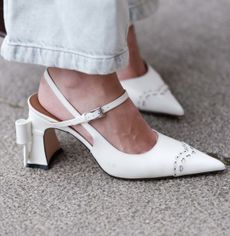 The Best Spring Shoes Hiding in the Sale Section
The Best Spring Shoes Hiding in the Sale SectionThe perfect opportunity to step up your footwear game.
By Julia Marzovilla Published
-
 Janet Jackson Says She Almost Played An Iconic Movie Role That Ultimately Went to Halle Berry
Janet Jackson Says She Almost Played An Iconic Movie Role That Ultimately Went to Halle BerryJackson had to turn the part down because she was heading out on tour.
By Rachel Burchfield Published
-
 Kim Kardashian Visits White House to Discuss Criminal Justice Reform with Vice President Kamala Harris
Kim Kardashian Visits White House to Discuss Criminal Justice Reform with Vice President Kamala Harris"I'm just here to help and spread the word."
By Danielle Campoamor Published
-
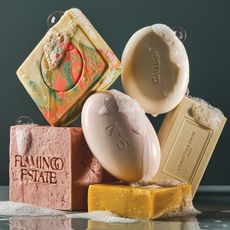 The Bar Soap Boom Is Here
The Bar Soap Boom Is HereDespite endless body wash options, the art of luxury soap making hasn't slipped away.
By Sophia Vilensky Published
-
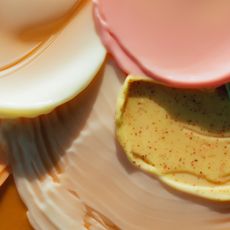 The 13 Best Products for Rosacea That Fight Redness and Irritation
The 13 Best Products for Rosacea That Fight Redness and IrritationFlare-ups are a thing of the past.
By Samantha Holender Published
-
 The 32 Best Hair Growth Shampoos of 2024, According to Experts
The 32 Best Hair Growth Shampoos of 2024, According to ExpertsRapunzel hair, coming right up.
By Gabrielle Ulubay Published
-
 The 20 Best Hair Masks for Damaged Hair, According to Experts and Editors
The 20 Best Hair Masks for Damaged Hair, According to Experts and EditorsHealthy strands, here we come!
By Gabrielle Ulubay Last updated
-
 Selena Gomez Just Shared Her Entire Morning Skincare Routine on TikTok
Selena Gomez Just Shared Her Entire Morning Skincare Routine on TikTokThe most giving girlie.
By Iris Goldsztajn Published
-
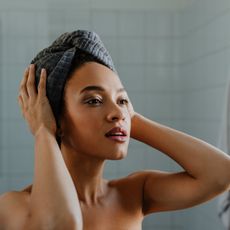 How Often You Should Wash Your Hair, According To Experts
How Often You Should Wash Your Hair, According To ExpertsKeep it fresh, my friends.
By Gabrielle Ulubay Published
-
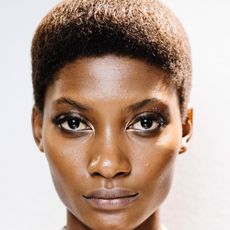 The 11 Best Magnetic Lashes of 2023
The 11 Best Magnetic Lashes of 2023Go ahead and kiss your messy lash glue goodbye.
By Hana Hong Published
-
 Beauty Advent Calendars Make the Perfect Holiday Gift
Beauty Advent Calendars Make the Perfect Holiday GiftThe gift that keeps on giving.
By Julia Marzovilla Last updated